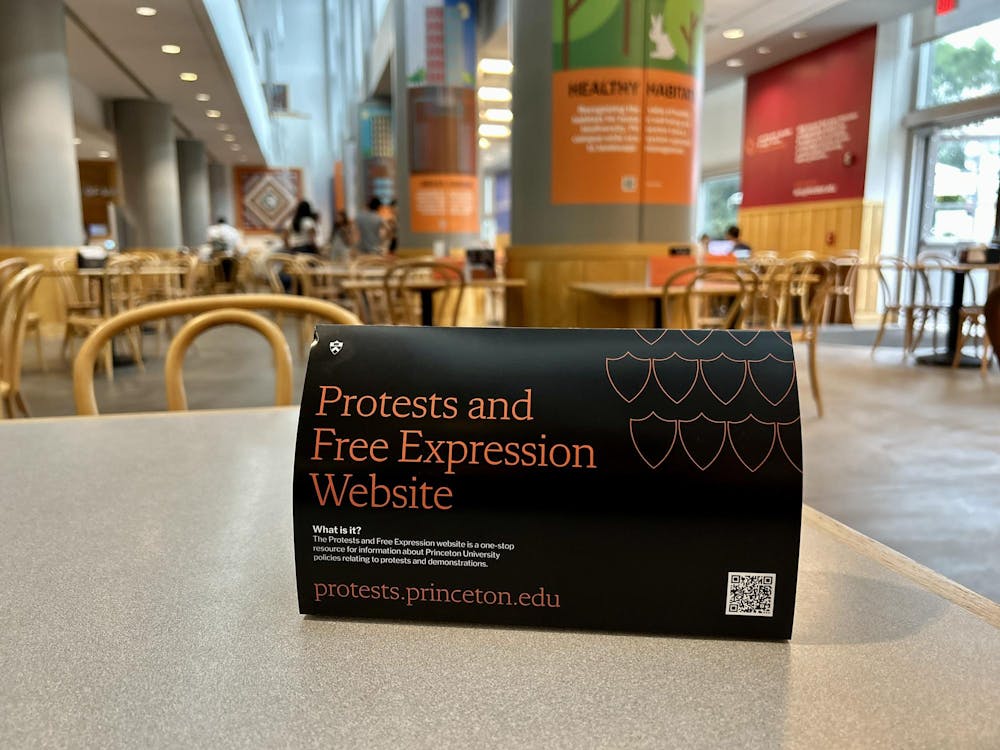This past week, tent cards advertising the University’s “Protests and Free Expression” website have been placed on the tables at the four Residential College dining halls, Frist Campus Center, and campus cafés. The University introduced the tent cards as part of a series of initiatives to promote the website around campus, though their effects on the student body seem to be limited.
The double-sided orange and black tent cards, which students can note as they dine, study, or socialize in these spaces, display the website’s URL and a QR code that links to the website.
Following sustained pro-Palestine protests during the spring semester, which included the arrest of 13 protesters who occupied an office inside Clio Hall, the University amended and codified some of its free speech regulations. The altered and clarified policies explicitly prohibit protests on the lawn of Cannon Green, where the “Gaza Solidarity Encampment” relocated to after the Clio Hall occupation, and on the grounds of Prospect House.
On Aug. 27, the University released the “Protests and Free Expression” website, which aims to provide students, faculty, and staff with easy access to the University’s amended and existing policies on free speech. The tent cards describe the website as “a one-stop resource for information about Princeton University policies relating to protests and demonstrations.”
In a statement to The Daily Princetonian, University Spokesperson Jennifer Morrill wrote that these tent cards and posters were introduced “to help spread the word to students, faculty, and staff” about the website. The website, she added, is intended “to increase awareness and understanding [about policies related to protest] in the community.”
These tent cards have been implemented alongside other attempts to advertise the website across campus and town.
“Advertisements have also been placed in the ‘Prince’ and Town Topics, as well as an open discussion of the new website at Monday’s CPUC meeting,” Morrill wrote.
The ‘Prince’s newsroom functions independently from its business operations.

Some students who have noticed the tent cards have had mixed responses.
“I feel like [it’s] a little hypocritical in a way, because [the University] says ‘oh, protest and free expression,’ but then they literally in the past have [been] known to be putting down protests and then the voices of people who go against what they say, especially on the Palestine issue,” Aishah Shahid ’28 told the ‘Prince.’
She described how she felt the University was not listening to students despite highlighting the importance of free speech.
“They put these signs up, but are they really taking our voices into account?” she asked.

Other students who spoke to the ‘Prince,’ however, did not seem to have noticed or considered these signs.
“This is probably the first time I’ve actually noticed them,” Oliver Rygh ’28 said.
“I don’t really pay that much attention to these signs,” Miles Gunty ’28 told the ‘Prince.’ He added that he only reads signs “that are particularly flashy.”
Despite student indifference to the sign’s monochrome orange-and-black appearance, the tent cards will remain around campus to spread awareness of the University’s new centralized resource regarding rules surrounding protests.
Nikki Han is a News contributor for the ‘Prince.’
Please send any corrections to corrections[at]dailyprincetonian.com.








